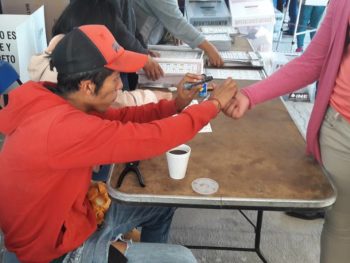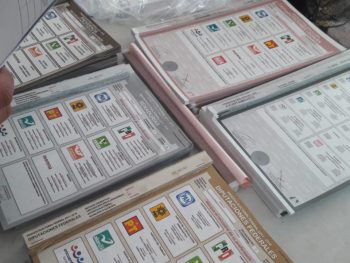 The word “historical” is often over-used, but it fits in the case of the election of Andrés López Manuel Obrador (AMLO) to the presidency of Mexico on July 1, 2018. The broad victory of the leader of the coalition “Together We’ll Make History ” is historical in many ways.
The word “historical” is often over-used, but it fits in the case of the election of Andrés López Manuel Obrador (AMLO) to the presidency of Mexico on July 1, 2018. The broad victory of the leader of the coalition “Together We’ll Make History ” is historical in many ways.
Never has a Mexican president been elected with such an overwhelming margin (53%of the vote, relegating the PAN-PRD coalition to 23% and the PRI to less than 17%) or with so many people voting (more than 56 million voters). His movement, the heart of which is Morena (Movement of National Regeneration), won 4 of the 8 governorships and Mexico City. The new president will also have a majority in both houses of congress.
A fundamental political reorganization has just begun in Mexico, revealing the collapse of a corrupt political system whose main parties have governed the country for decades (the Institutional Revolutionary Party PRI, the National Action Party PAN and the Party of the Democratic Revolution PRD).
The magnitude of AMLO’s victory is such that these parties had to immediately recognize the defeat, which is also a novelty in the mutilated electoral history of Mexico. This was the first time a contemporary election had been as free and transparent, despite widespread vote buying, as the one that has just taken place in the country.
AMLO’s victory, after two attempts foiled by the fraud in 2006 and 2012, is due in part to a new democratic wind that blows, especially among young people who mobilized massively during the campaign and the vote.
The vote for AMLO meant for many Mexicans the possibility of putting an end to a rotten political system that has led the country to become practically ungovernable, and to a rejection of the “power of the mafias” within the State, as the new president-elect said during the campaign. “Corruption has become the main function of political power,” writes AMLO in his progam “2018, The Exit: Decadence and Renaissance of Mexico.”
The hardest part is just beginning now for the leader from the state of Tabasco. Drug trafficking, political violence (especially in local politics, where the PRI and the PAN continue to govern), the existence of a deep state composed of the interests of the armed forces and a deteriorated security apparatus, the hyper-power of the economic and financial sectors, massive poverty (46% of the population), inequalities, and the dependence of the economic and development model on the production and value chains of multinationals, especially from the United States pose major obstacles.
In these conditions, governing in Mexico doesn’t necessarily mean having power, especially when it comes to using it to serve the population and the common good. The new president-elect has indicated the course of his action during his first speech after the victory: he will act for the “reconciliation of the nation”. He will have much to
do and can only move forward if his government is pushed by a mobilized popular movement. Without this dynamic, he will not be able to challenge the power of vested interests.
 The good news is that this leader and his movement are not naïve; they know what they’re up against. They’ve worked for years to prepare and build their strategy and government plan of action, taking into account these parameters.
The good news is that this leader and his movement are not naïve; they know what they’re up against. They’ve worked for years to prepare and build their strategy and government plan of action, taking into account these parameters.
How far will they be willing to go and how far can they go?
The election of July 1, 2018 was the last opportunity for Mexico not to become a failed state. Mexicans took advantage of it. Now they must rebuild and consolidate national sovereignty at the political, economic and geopolitical levels.
The first words of the new president-elect to Donald Trump (the two men spoke on Monday, July 2) expressed these concerns.
The first acts of the new Mexican government won’t be known until December of this year ,but from the first day after the elections, it hit the ground running. The next months in Latin America will be exciting.
Christophe Ventura is a researcher with the Institute for International and Strategic Relations, in Paris, France. He is the author of the book “The rise of a new continent: the geopolitics of Latin America.” He was part of the Electoral Observation Mission 2018 of the University and Citizen Network for Democracy.



